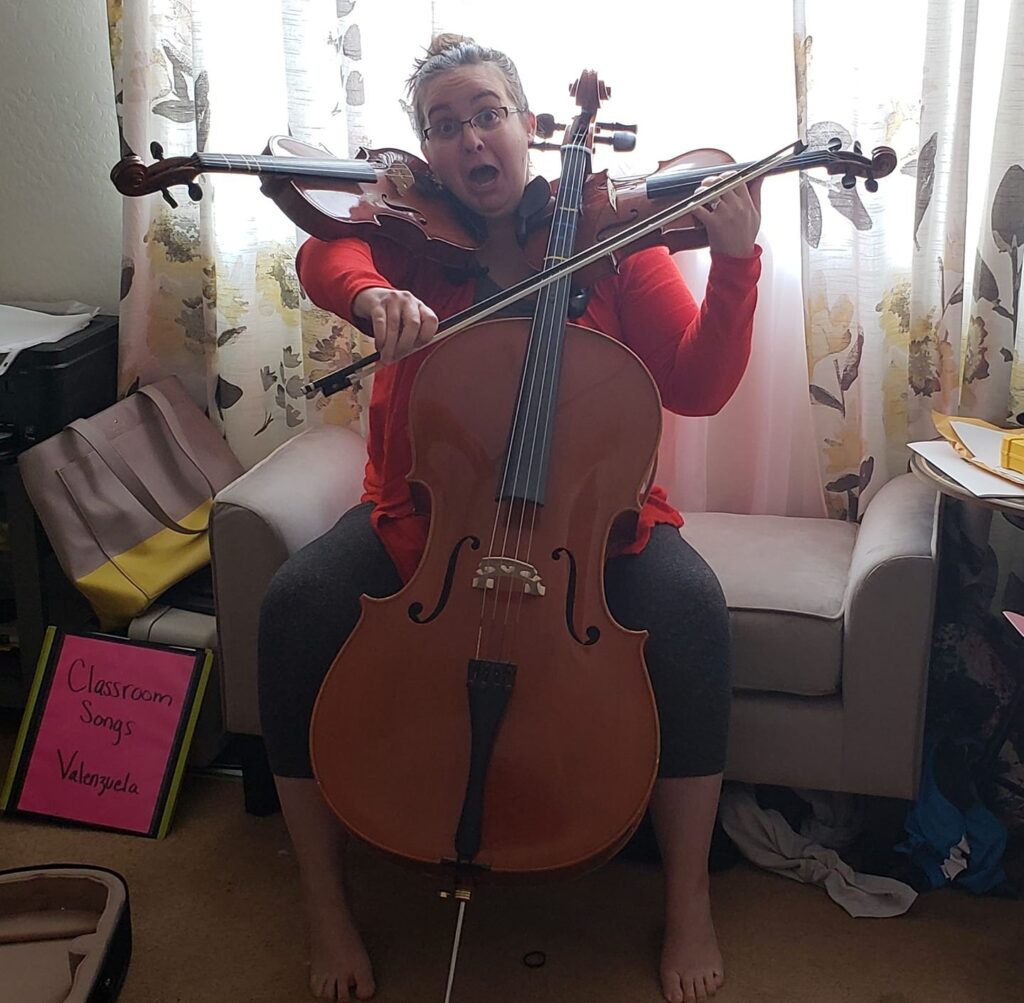“I keep teaching because it’s who I am.”
Elizabeth Valenzuela

1. Could you share a memorable teaching moment or experience from your time with Harmony Project Phoenix that has had a significant impact on you or your students?
My elementary aged students have been working on confidently reading music while playing without having to write in every note. Students have started seeing the patterns in musical form and efficiently explainging how we should learn each piece of music. We have practiced playing in front of each other and critiquing each other. Most of the time, when I do this with students, they always find the things that the player does “wrong” and needs to really think about finding something they did well. Not this group! They each are always able to find things they are all doing well and explain why it’s good using musical terms and metaphorical visuals to elaborate on why a performance aspect is good. Then, when we pick something to make better, they are able to identify a specific thing and explain how to fix it with ease. All of these students are around 5th grade in age.
2. Balancing a career as a violinist, teacher, and being a mother to a young child is undoubtedly demanding. How do you manage your time effectively to excel in your various roles, and what motivates you to continue teaching despite the challenges?
I’ve always wanted to be a teacher. The process of learning and teaching has always fascinated me. Music is a very abstract concept that needs to be taught concretely. It took a few years of teaching before I was able to start playing fairly regularly again. So naturally, once that was all balanced, I threw a baby into the mix. I keep teaching because it’s who I am. I’ve never not seen myself as a music teacher. My students and I build a community of respect and trust, so once we get that solidified, teaching doesn’t become a challenge as much as it becomes a puzzle. And we like to have fun as we make mistakes solving each day’s puzzle.
3. As a Teaching Artist in Residence, you play a crucial role in shaping the musical and personal development of your students. How do you approach creating a supportive and nurturing learning environment that empowers students from diverse backgrounds to thrive and pursue their passion for music?
The very first thing I do when I meet my students is let them know that I will be unapologetically me and I hope that they can be unapologetically themselves. I let them know that I have a New York accent on occasion, I am obnoxiously loud and energetic, but I am very serious about being respectful with my personality and allowing others to learn and be themselves. I ask questions if they start telling me about something that I have never heard of, compliment things that exhibit a piece of their personality (shoes, stickers, hats, etc.) and then we make music. I create structure and routine for students so they easily transition from pre music class to music class and feel comfortable. Then we attempt to play together for the first time of the day and laugh when we make silly mistakes. When students are struggling, we work together to figure out what happened, and how we can get better over time. We don’t expect immediate fixes and knowledge from each other, we know things take time and practice. We work to build a community of respect and curiosity.
